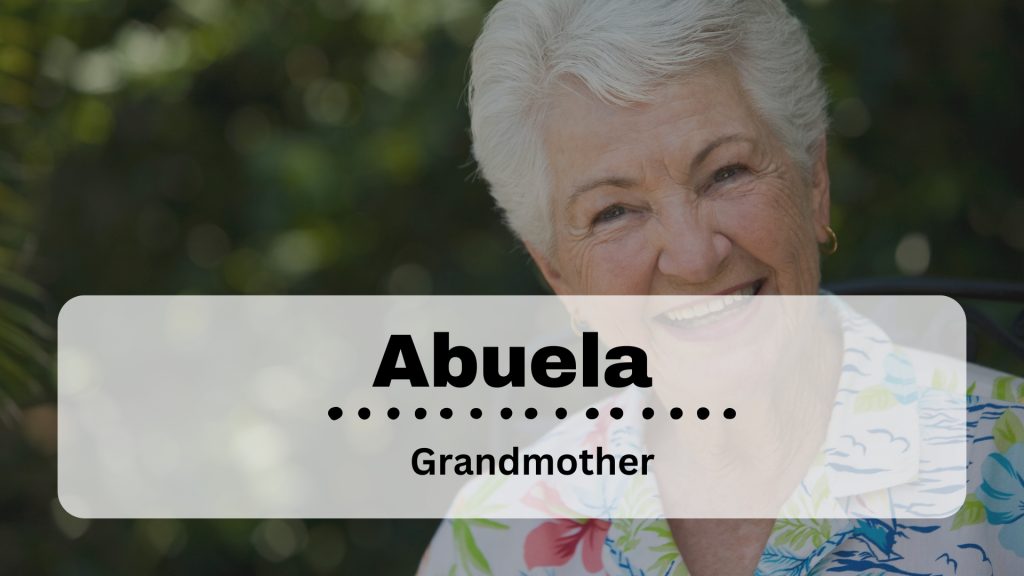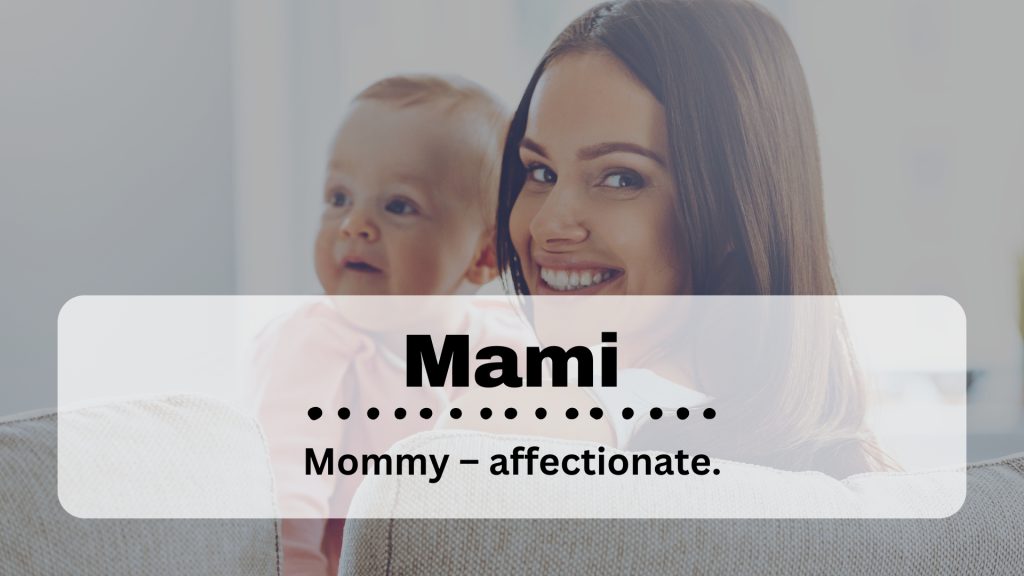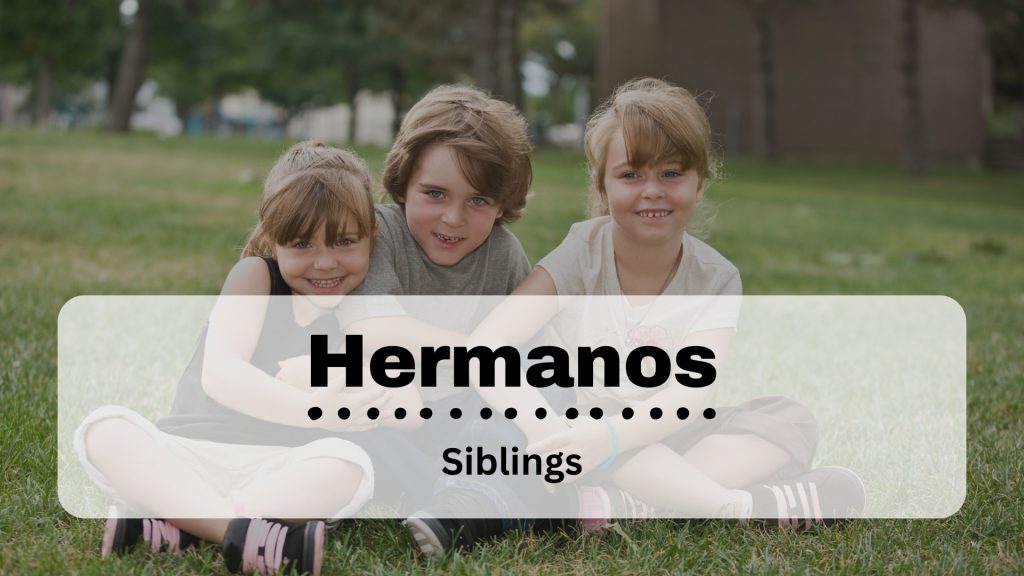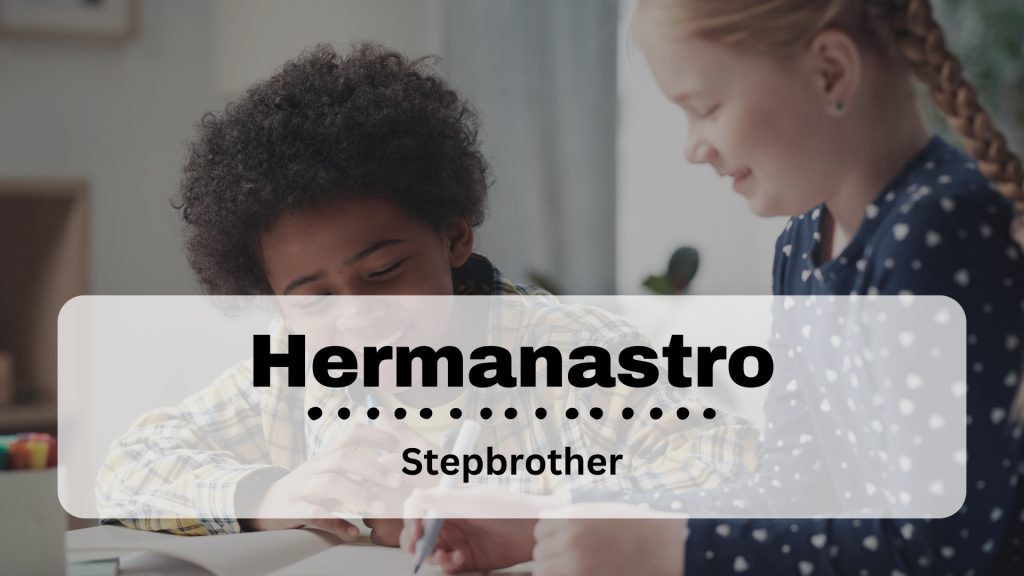In Spanish-speaking cultures, you call your girlfriend’s mom ‘suegra.’ This term shows respect and acknowledges her role in the family. Using the right words like ‘suegra’ can help you connect better with her and shows you value the relationship.
It’s interesting to think about how these family terms shape the way people interact with each other in Spanish-speaking families. Understanding this can make communication smoother and relationships stronger.
What are the family members in Spanish?
Knowing the Spanish words for family members can help you communicate respectfully and show you understand the culture when you talk to your girlfriend’s mom. Here are some basic terms:
Mother is ‘madre.’ Father is ‘padre.’ If you’re talking about a brother, say ‘hermano,’ and for a sister, it’s ‘hermana.’

For the wider family, grandfather is ‘abuelo,’ grandmother is ‘abuela.’ Uncle and aunt are ‘tío’ and ‘tía,’ respectively. For cousins, use ‘primo’ for a male and ‘prima’ for a female.
| Term | Meaning |
|---|---|
| Madre | Mother |
| Padre | Father |
| Hermano | Brother |
| Hermana | Sister |
| Abuelo | Grandfather |
| Abuela | Grandmother |
| Tío | Uncle |
| Tía | Aunt |
| Primo | Male cousin |
| Prima | Female cousin |
| Nieto | Grandson |
| Nieta | Granddaughter |
How to say mother and father in Spanish
Let’s move on from how nouns and adjectives align in Spanish. Now, let’s cover the simple terms for ‘mother’ and ‘father’:
‘madre’ and ‘padre.’

Knowing these words is key when you talk about family in Spanish. Use ‘madre’ for ‘mother’ and ‘padre’ for ‘father.’ These terms help you speak clearly and respectfully with Spanish-speaking families.
| Term | Meaning |
|---|---|
| Madre | Mother – formal. |
| Padre | Father – formal. |
| Mamá | Mom – informal. |
| Papá | Dad – informal. |
| Mami | Mommy – affectionate. |
| Papi | Daddy – affectionate. |
| Jefa | Boss – playful for mom (Mexico). |
| Jefe | Boss – playful for dad (Mexico). |
| Vieja | Old lady – affectionate slang for mom. |
| Viejo | Old man – affectionate slang for dad. |
| Mamacita | Mommy – playful, sometimes flirtatious. |
| Papito | Daddy – affectionate or playful. |
Mastering Reflexive Verbs in Spanish: A Complete Guide
How to call family members in the plural
When you talk about more than one family member in Spanish, the words change a bit to show there’s more than one. For example, if you have more than one mother or father, you say ‘madres’ for mothers and ‘padres’ for fathers. Similarly, for brothers, it’s ‘hermanos,’ and for sisters, it’s ‘hermanas.’

When you have a group of both brothers and sisters, you just use ‘hermanos’ to cover everyone. Usually, you just add an -s or -es to make these words plural, depending on how they end.
| Term | Meaning |
|---|---|
| Padres | Parents |
| Abuelos | Grandparents |
| Hermanos | Siblings (or just brothers) |
| Hermanas | Sisters |
| Tíos | Uncles (or uncles & aunts) |
| Tías | Aunts |
| Primos | Male cousins (or mixed group) |
| Primas | Female cousins |
| Nietos | Grandchildren |
| Hijos | Children |
| Cuñados | Brothers-in-law (or mixed group) |
| Suegros | In-laws (parents-in-law) |
How to call the couple in Spanish?
In Spanish, when you talk about a couple, you use the word ‘pareja’. It applies to everyone, whether they’re married or not, and it doesn’t matter their gender or sexual orientation.

It’s a simple, straightforward word that fits in any kind of conversation. So, when you’re discussing relationships in Spanish, just remember ‘pareja’ is your go-to term.
| Term | Meaning |
|---|---|
| Novios | Boyfriend & Girlfriend |
| Pareja | Couple |
| Esposos | Married couple |
| Marido y Mujer | Husband and Wife |
| Amor | Love – used as a nickname |
| Mi Vida | My life |
| Tortolitos | Lovebirds |
| Comprometidos | Engaged couple |
| Enamorados | People in love |
| Media Naranja | Soulmate (literally “half an orange”) |
| Amantes | Lovers |
| Amigovios | Friends with benefits (slang) |
How to call those from mixed families
When talking to members of mixed families in Spanish, you often see a mix of different cultural terms and polite titles.
For instance, you might hear someone use ‘suegra’ or ‘madre’ alongside other specific terms from their own culture.

This way, they respect and celebrate both the language and cultural backgrounds in the family.
| Term | Meaning |
|---|---|
| Padrastro | Stepfather |
| Madrastra | Stepmother |
| Hermanastro | Stepbrother |
| Hermanastra | Stepsister |
| Medio hermano | Half-brother |
| Media hermana | Half-sister |
| Hijastro | Stepson |
| Hijastra | Stepdaughter |
| Familia Ensamblada | Blended family |
| Tío Político | Uncle by marriage |
| Tía Política | Aunt by marriage |
| Sobrino Político | Nephew by marriage |
How to call children in Spanish
In Spanish, people use different terms to talk to children, depending on the situation and how close they are.
For casual moments, ‘niño’ or ‘niña’ works well, and ‘chico’ or ‘chica’ is good for older kids.

If someone is showing affection, they might say ‘hijo’ or ‘hija’ (which means son or daughter) or ‘peque’, short for pequeño, which means little one.
These terms can change a lot in different Spanish-speaking areas.
| Term | Meaning |
|---|---|
| Hijo | Son |
| Hija | Daughter |
| Niño | Boy |
| Niña | Girl |
| Bebé | Baby |
| Chamaco | Kid (Mexico) |
| Chaval | Kid (Spain) |
| Pibe | Kid (Argentina) |
| Crío | Child (Spain) |
| Escuincle | Brat (Mexico) |
| Guagua | Baby (Chile, Ecuador) |
| Muchachito | Little boy |
Master “por” and “para” with these practical examples.
How to call in-laws of the family in Spanish
When you talk to your in-laws in Spanish, you use special words. If it’s your girlfriend’s mom, you call her ‘suegra.’ Her dad is ‘suegro.’ These words show you respect them but also feel close, like family.

It’s important to get this right to keep things smooth in the family.
| Term | Meaning |
|---|---|
| Suegro | Father-in-law |
| Suegra | Mother-in-law |
| Cuñado | Brother-in-law |
| Cuñada | Sister-in-law |
| Yerno | Son-in-law |
| Nuera | Daughter-in-law |
| Consuegro | Your child’s father-in-law |
| Consuegra | Your child’s mother-in-law |
| Familia Política | In-laws (general term) |
| Cuñis | Slang for brother/sister-in-law |
| Suergris | Playful slang for mother-in-law |
| Yernito/Nuerita | Cute way to say son/daughter-in-law |
Family members in Spanish Slang
In Spanish slang, people often use more casual, affectionate terms for family members. For example, ‘viejo’ and ‘vieja’ are informal words for dad and mom. They sound friendly and warm.

Also, instead of ‘hermano,’ people might say ‘bro’ or ‘mana’ when they’re talking casually. This kind of language shows how close and comfortable family members are with each other.
| Term | Meaning |
|---|---|
| Viejo/Vieja | Old man/lady – affectionate for parents. |
| Tata | Grandpa (Argentina, Spain). |
| Nana | Grandma (Mexico). |
| Primo | Bro – used among friends in some countries. |
| Carnal | Brother/best friend (Mexico). |
| Mamá Lucha | Fighting mom – strong mom figure. |
| Papucho | Handsome dad. |
| Padrino | Godfather – also used for a close older male. |
| Mamacita | Attractive woman (sometimes for mom). |
| Hermanito | Little brother – used among close friends too. |
| Bendición | What kids say to parents for blessings. |
| Flaco | Slim guy – used affectionately for a son. |
Conclusion
In Spanish, they have a lot of words for family members that show respect and recognize everyone’s specific role in the family. For example, you’d call your girlfriend’s mom ‘suegra.’ Knowing the right words to use is important because it shows respect and helps build stronger relationships.
When you get these terms right, you communicate better and connect more deeply with others, which is really valuable in any culture.
Speak and Write Confidently – Join Lingua Viva Today!
Born in Cali, but raised in London, Juan Pablo has led an interesting life. He has an undergraduate degree in Foreign Language and 10+ years of experience. Juan Pablo has taught and worked as a professor and interpreter in Spanish, English, and French languages. He prides himself on having a ‘situational teaching style’, which means he caters lessons to fit student needs. He is serious about teaching, responsible, professional, clear, and concise.











